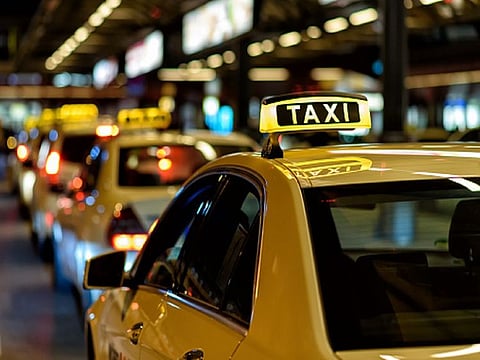Dubai residents are calling in Careem and Uber rides - but not for those office trips yet
It could be a further few months before those office trips too pick up pace

Also In This Package
Dubai: For the first time since the COVID-19 breakout, Dubai residents are calling in Careem and Uber rides much more frequently – but not to head out to their offices. At least, not yet.
“There’s still a lag on the office trips – it could be that most of them are still working from home,” said Bassel Al Nahlaoui, Managing Director – Mobility at Careem. “Whatever increased movement we are seeing since May is coming from leisure movements. Clearly, a majority of those calling in are for purposes other than commuting back and forth from work.”
Those user patterns and the time the calls are made for a limousine clearly provide the evidence. “If you look at where the peaks are and if it’s not in the mornings and evenings, it usually means more leisure trips. Plus, we have corporate accounts and so can easily tag whether it’s for a corporate trip or leisure.”
So, call a ride to the mall or a restaurant – Yes. But for the office trip, maybe later.
How quickly users get to ride-hailing again for the office trip or business meetings will dictate the speed of recovery for this particular service industry. Only when that happens will the livelihoods of the limousine drivers get back to even keel.
The industry has been going the extra mile to reassure users that it is safe to tap their ride-hailing app and have a driver come by to pick up. Post-COVID-19, safety protocols have been expanded – and strictly adhered to. All with an eye to getting back the riders.
Industry sources are aiming for a near full recovery by August/September, when more offices will have re-opened to full capacity. Last week, Careem itself asked its Dubai workforce to head back to the office – for at least one day in a week.
Gains are there
For now, Al Nahlaoui is looking to the positives that have been there since Eid. “There’s been an uptake from both new and existing users,” he added. “Clearly, there was something different in May than was the case in the earlier months.”
A full recovery will also hinge on more tourists – something the industry is hopeful about in the final stretch towards the Expo. Right now, much of the demand is driven by residents.
Get them to use more
Careem has a subscription model, with the promise of instant discounts or a free ride by paying a monthly Dh39. The offers also extend to ordering in food or grocery through the Careem app.
“Think of it as Amazon Prime in a way, where we building more features to add to the ride-hailing option,” said Al Nahlaoui. “We will keep exploring anything that comes across our – and consumer – minds when it comes to ride-hailing. Nothing is too left field for us to try. We are just trying to figure out what new would work in Dubai.
“We have one payment platform and one subscription platform built on the super-app. Anything that we introduce in future can come and sit on top of that.”
Subscription is the new deal
On whether Careem would venture into leasing cars to users on pay-by-the-kilometre basis or some other service where the user does the driving to his destination, Al Nahlaoui is keeping his options open-ended.
But there are some already making headway on this particular route. Earlier this year, the leasing services platform ekar launched a subscription option for those who want to rent a vehicle for longer periods. ekar brought on board some of UAE’s largest rental companies and also reached out to its existing base of 250,000 users.
“This came on the back of a really high demand post-COVID,” said Vilhelm Hedberg, CEO of ekar. “There're a lot of people who were using public transport and who felt uncomfortable being around other people. They wanted to be in their own enclosed COVID-free environment.”
Cut down to size
The local Thrifty franchise “marginally” reduced its fleet last year, which is what most of the fleet companies did as well. “However, the good news is that we are surely going to be back at the pre-pandemic levels this year and, perhaps, more if all goes well,” said Rahul Singh, Managing Director for the Car Rental Group at A.A. Almoosa Enterprises, which operates the Thrifty and Dollar operations here. “The Expo will surely see an upsurge in demand, and we are prepared to make the most of this opportunity.”
Leasing tariffs drop
According to Singh, a “lot of companies dropped their rates substantially. “But the drop in demand has been counterbalanced by a reduction in overall supply in the car leasing and rental market with a lot of companies going out of business. The pandemic has severely impacted companies with a weak business model.”
A full return to health for the UAE's ride-hailing and car rental categories hinges on how soon potential users are convinced about onboard safety. And how soon they return to their offices...
Sign up for the Daily Briefing
Get the latest news and updates straight to your inbox









